Goma blues.... Rebellion number five...
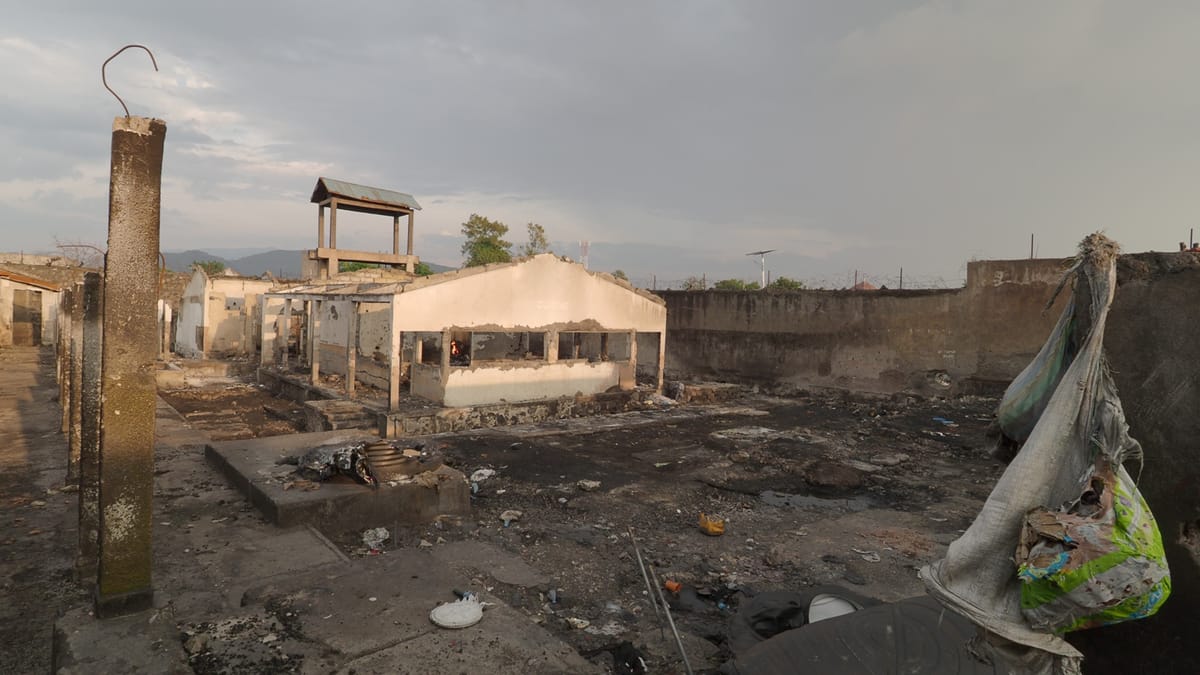
I got a strange feeling when my passport was stamped correctly with a Congolese entry visa at the 'Grande Barriere', the border post with Rwanda. After 3 years and several illegal crossings into M23 territory – much to the disliking of the central government in Kinshasa – I could finally visit Congo again in a more normal way. The M23 had taken the city just a couple of days beforehand. At first, I didn't plan to go back so soon; I didn't have an assignment, hotels and transport in this city are expensive and I hate locations in which the international press is running around, running after officials to get news or to go further into the country. As an ex-news hunter for several big international media in this region I had my share of that already. But a friend of mine convinced me to join Colette Braeckman of the Belgian newspaper Le Soir to film her. Colette will retire very soon, and a Belgian production company wanted me to film her while she would send her last reports to Belgium. They had already collected tons of archive footage from her long career and my pictures would be used as the final chapter. She reported out of Congo for more than 50 years. I didn't always agree with the things she wrote but, in my bible, everybody is entitled to have his or her own opinion. She agreed to book rooms in the Caritas guest house and not in Hotel Linda, where most of the other journos were staying because the M23 bosses had chosen that hotel as their first base in town. This guest house was also a lot cheaper. This would offer the ideal opportunity to link up with the M23 top brass, to talk to 'Gomatriciens' (locals), to exchange views with Colette and to check out how the M23 was dealing with the new challenge to set up a new administration, to secure the town, to plan the future and to consolidate its position. Until last week they had been living in small houses in Rutshuru or in Bunagana, here in Goma they were sleeping and eating in much better places. In my previous blog article I had mentioned that their real challenge would start now, and I was present to check how it kicked off.
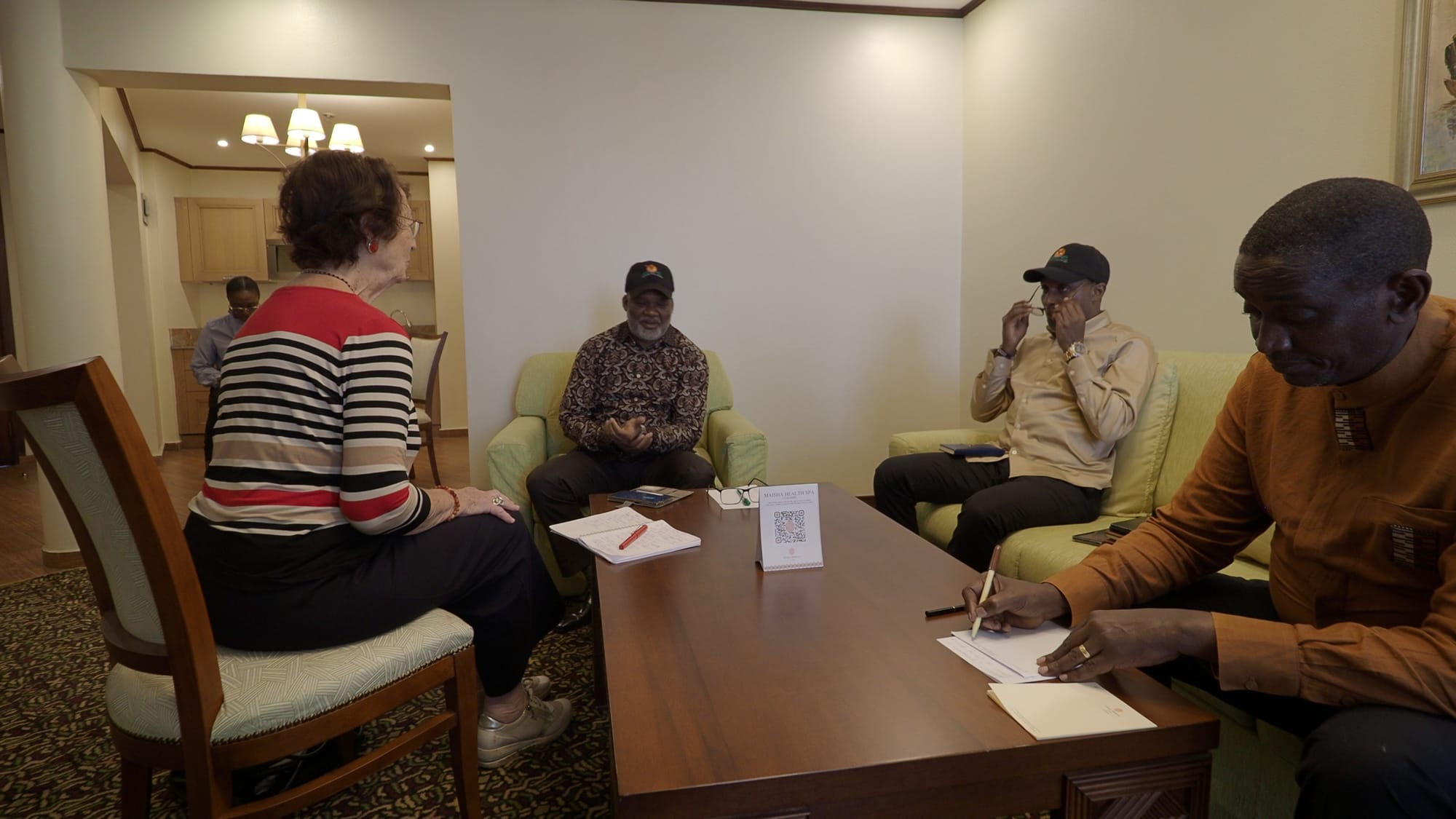
Goma
Goma had already been cleaned up when we arrived. Most of the bodies had been cleaned up and the central lane that connects the border with Virunga and further on also with Ndosho and Mugunga was nearly spick and span. It also struck me how many people were walking in the streets. M23 patrols were keeping a low profile but our taxi driver told us that most of the city was safe now and that only a few pockets of enemy soldiers were active in the more popular areas of the town. "There are still many of them hiding amongst the population, they still have guns," he told us. "But the resistance is dying out. Other FARDC soldiers fled into the Monusco compounds where they were disarmed. The M23 insists now that they should also surrender to them. Thousands of FARDC soldiers have already been taken prisoner and the M23 holds them in Rumangabo, outside the city. The M23 wants to convince them to join their cause."
We visited several popular areas and the prison of Goma where all the prisoners could escape before the M23 attacked the town. More than 160 female prisoners and children were burned alive in that jail after several gas boilers exploded during the ongoing chaos. Half of those bodies were still being kept in body bags in front of the prison entrance. I filmed this and walked through the prison, in the kitchen there was still a fire going. The walls of the cellblocks were pitch black of the fire that had raged here. Colette took notes of what she saw. It was already late, and she wanted to go back to the guest house.
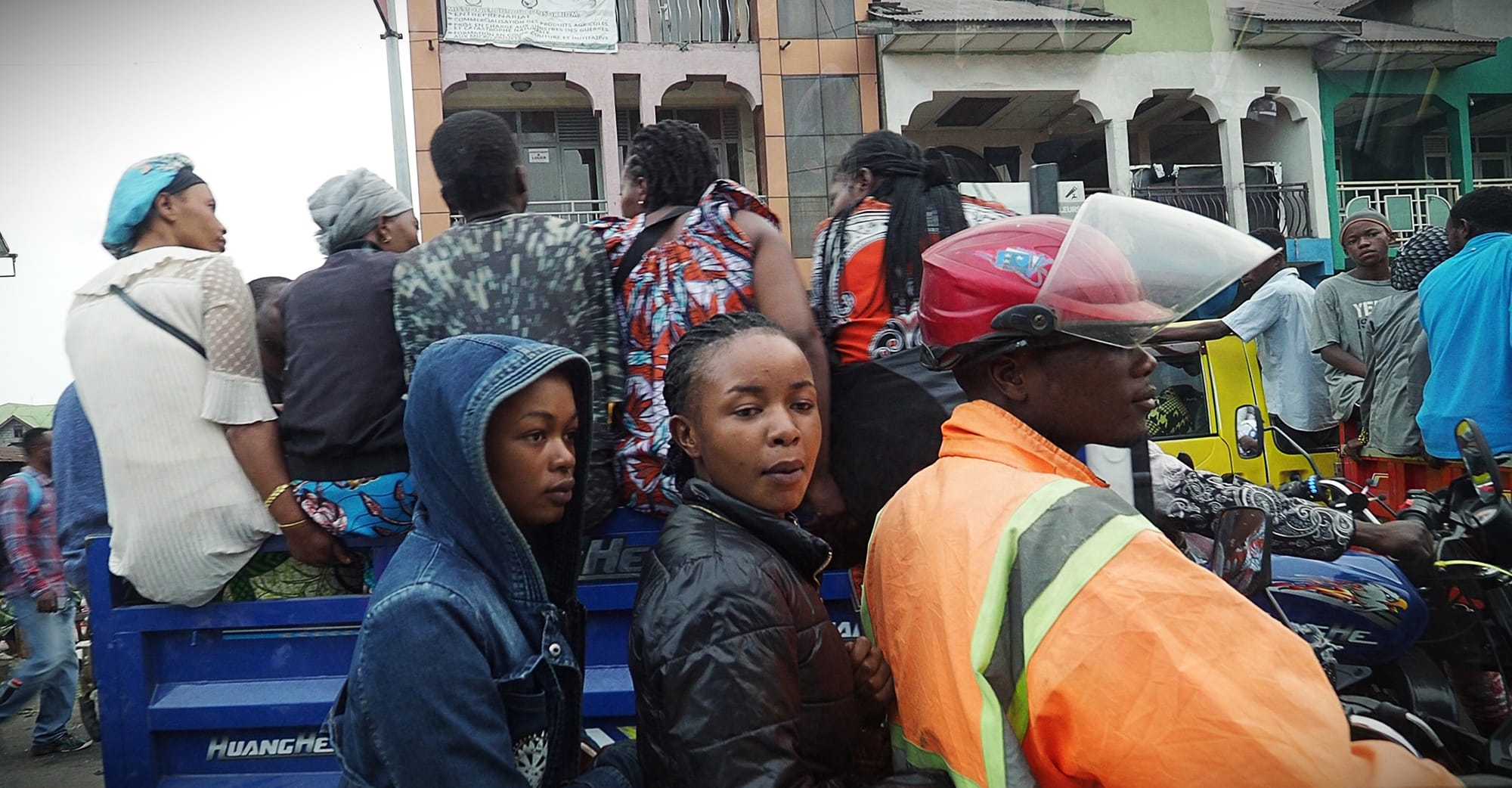
The following day an NGO had agreed to take us on a trip outside the city to visit looted hospitals. Before going back to the guest house our driver dropped me off at the Linda Hotel where I met a couple of foreign journalists I knew from the past. For most of them this was their first Congo experience. In the old days the bigger news agencies kept people like me in this region to follow up on events and to anticipate news but nowadays Africa has been pushed largely out of the big news circuits. Other wars such as the ones in Gaza or in Ukraine are now stealing the show. In the meanwhile, hundreds of people were dying in wars in Africa, but nobody seemed to care. The fall of Goma would break that habit for a couple of weeks but after that this conflict would be forgotten again. Very soon the city of Bukavu will also be taken by the rebels but those events will probably attract less attention than the fall of Goma. And after Bukavu it will probably become the turn of Burundi to be cleaned out of all the local Hutu extremists because the FARDC, the FDLR (Rwandan Hutu extremists) and the Wazalendo (armed Congolese street gang) will probably run into that country to find protection. I will give more info about this probability at the end of this paper.
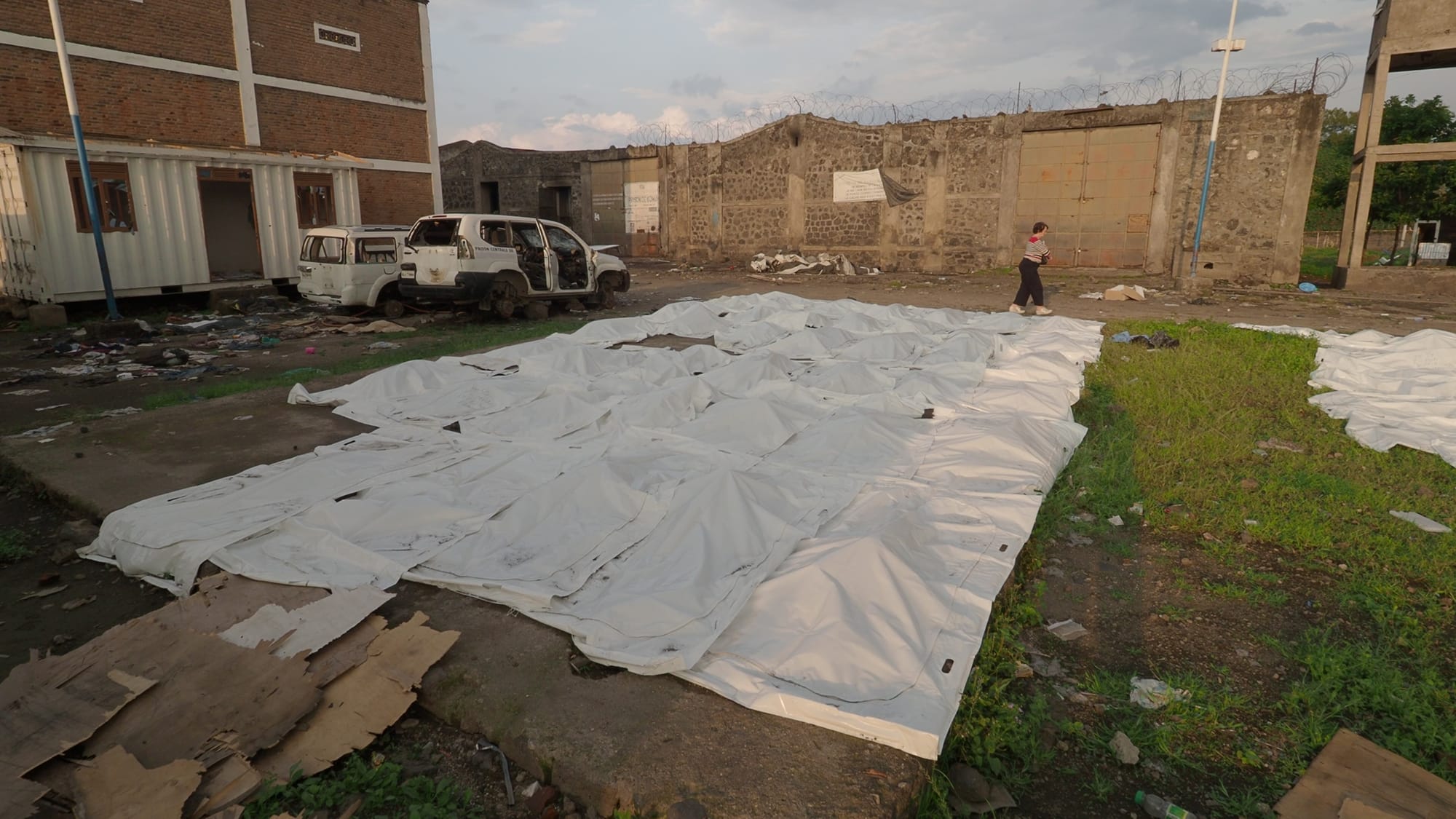
Hotel Linda
I kept my stay in Hotel Linda very short: a French journalist at a table was talking loudly about the 'Rwandan soldiers' he saw in town. I hadn't seen any and he was probably referring to the M23 patrols he saw. Many M23 are Congolese Tutsis and the uniforms they are wearing look like Rwandan uniforms. Earlier that day I had talked to a Belgian journalist who made the same mistake. I didn't even bother to go in a discussion with her; her knowledge of this region, its history and its geography, was too limited. The idea crossed my mind that if people like her would have to inform the outside world what was really happening here that information would never be correct. I asked a couple of other journalists why I had never seen them in the M23 zone during the war and they bluntly told me that if they had done that, they would have been barred from entering Kinshasa or being denied their accreditation there. Luckily, I ran also into a befriended Rwandan journalist. I told him that I was beginning to get a profound 'deja vue' feeling about all this. I was covering my fifth rebellion in the Kivus now. Hanging out in hotels full of journalists had never been my first choice. The first one took place in the 90s when the AFDL marched on Kinshasa, the following ones were Goma RCD one and two, followed by Nkunda's rebellion and the two succeeding M23-Makenga revolts. Each rebellion had started here in the Kivus but when Makenga started to fight back the FARDC three years ago we all understood that this would be the last chance for the Bagogwe-Kongomani, the Congolese Tutsis, to find recognition and the possibility to bring back their families who were now still living in refugee camps.
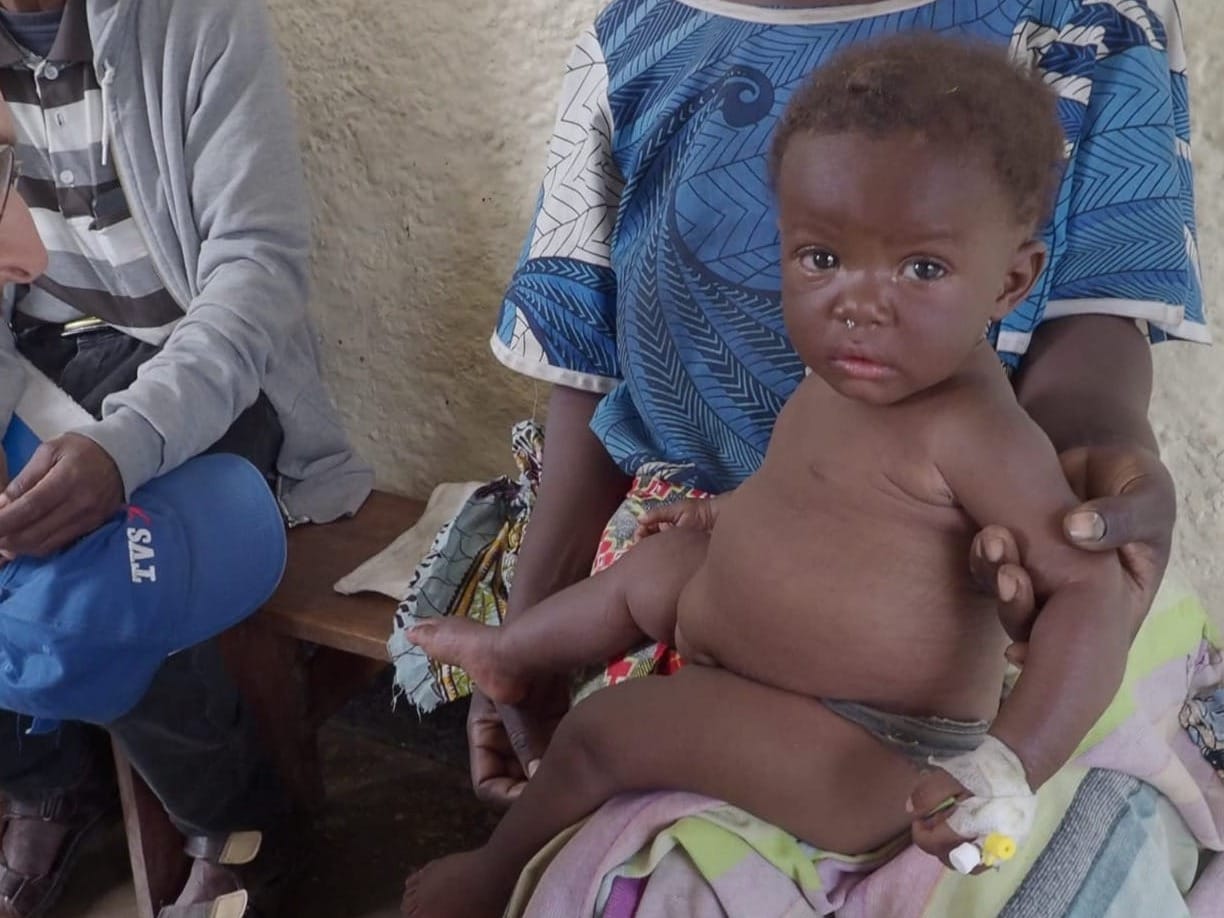
I'm already married to a Tutsi woman for nearly 30 years. They are proud and stubborn people with a warrior culture. They are often too stubborn to admit their mistakes. The explorers Burton and Speke described them as fierce fighters and most of the slave traders did not dare to set foot in their region. It can take years for an outsider to fully understand them. Their sometimes-arrogant behavior often pissed me off, but I started to understand soon that there was a reason for this. It was often their last line of defense after being badly treated or confronted with fake or senseless arguments. I covered most of their wars after the genocide against the Tutsi during which bonds were made with some of the commanding officers. As my wife was also a Mugogwe (she was also born in Congo) I gained access to that bunch as well. These people are not Rwandans but Congolese. Many of them helped Kagame & co to find for the liberation of Rwanda but they had always told me that they would like to return to their homelands in Masisi or in Rutshuru or to Minembwe, home of the Banyamulenges, another Congolese Tutsi community in South-Kivu. Most of the journalists in Hotel Linda didn't understand this well; they had read the reports of the UN group of experts and a couple of newspaper articles and most of them were convinced that most of the M23 rebels were in fact Rwandan soldiers. They would leave this place in a week and move on to another story. But we will stay here.
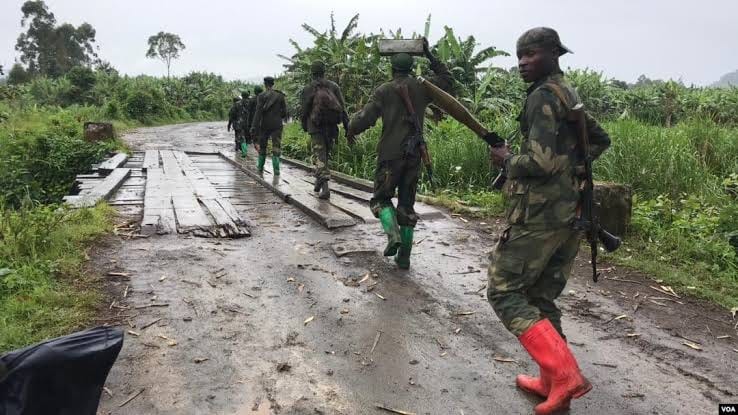
The following morning the NGO jeep picked us up at the guest house. We passed the IDP camps of Mugunga and Lac Vert. Many refugees were already returning home to their villages. Some NGOs complained that the M23 were forcing them out of these camps, but the guys who had picked us up told us that this was exaggerated. When you'll read this article, those camps will probably be empty. And yes: some of these IDP will end up in their home villages where their lands and houses will have been stolen by others. The big hospital in Sake had been looted completely but in Kirotsche two nurses - an old man and a younger midwife - had protected the hospital for two years against looters. The whole hospital was intact, and the duo was happy with the presence of the M23 who had chased away the FARDC and Wazalendo bandits. Colette wrote a story about the two heroes.
Just after the takeover of Goma Patrick Muyaya's propaganda mill tried to accuse the M23 of the more than 3000 civilian deaths in the city. Most of the witnesses of this event told us that most of the people had died during the looting that took place before the rebels entered. Civilians started looting and FARDC soldiers and the Wazalendo shot them down to steal those already stolen goods. The women in jail died after several gas boilers exploded. These events were covered in detail by several local and international media, so I won't go into detail about this again.
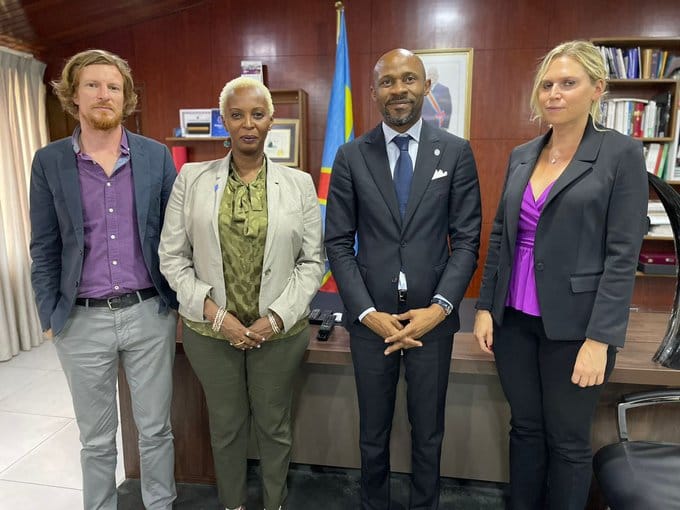
M23 rule, deployment
I was sometimes skeptical about the administrative and media orientated capacities of this organization. Two weeks ago, they were still sheltering in Bunagana or in Rutshuru and now they are in the big city. Here they restored order in a couple of days. Their media department was clearly overwhelmed but managed anyway rather well to deal with the foreign press. Most of the journalists I talked to were positive about their support and their answers. And the smartest ones amongst them were happy that the M23 media department didn’t manage well to keep the press sardines together. Some of them slipped through their mazes to travel down south to cover the preparations for the possible take over of Bukavu. Corneille Nangaa, the so-called boss of the AFC-M23 coalition opened up for the press. Sultani Makenga, the real leader, was nowhere to be seen and we were told that he was at the front line. They had installed a new governor and a vice governor in town, and they were working on a new administration, they tried to reopen the schools but very few pupils showed up. I would have liked to discuss this with my friend Bertrand Bisimwa, another M23 leader, but I just saw him briefly because he was too busy. I was surprised to see who they appointed as the new governor: I knew this guy from the past when he was still collaborating with the FDLR in Masisi and I knew his father who was also a Hutu militia leader before he changed sides. Besides all that I started thinking that it is too early to judge the M23 how they are positioning themselves. I just hoped that they would not start to make the same mistakes as the leaders of the previous rebellions in the region whose vanity would be the beginning of their own downfall.
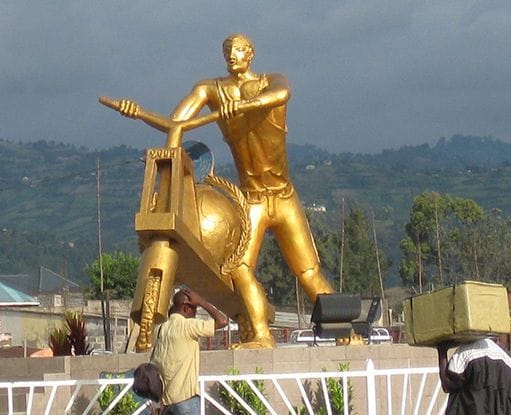
So far, the M23 was doing well: their attack on Goma was not planned at this stage but they had to move in fast to prevent the FDLR and the FARDC to attack Rwanda and to start killing innocent people in Goma. They had given the government in Kinshasa the time to negotiate a settlement, but Tshisekedi continued to refuse for 3 years. And worse: the international community and the UN had allowed him to do that. I was convinced that the takeover of Goma would cause more bloodshed but the M23 had also won this contest: most of the killings were done by the Wazalendo and the FARDC and the international press had witnessed that.
Politics
Making an alliance with Corneille Nangaa and the AFC (Alliance Fleuve Congo) was a smart move to put salt and pepper in the eyes of the Tshisekedi clique in Kinshasa. Before Nangaa arrived in Rutshuru the Makenga rebellion was also too easily labeled as a Rwandan outfit with all the traditional cliché arguments that come with that: the looting of minerals, balkanization, fake human rights abuses, rape, etc. The M23 was not fighting for these reasons. While Nangaa had not a clean record the M23 had an ally that Kinshasa could understand and recognize itself in. He started shouting very loudly that he would march on Kinshasa, and this was misunderstood by many Congolese Tutsi refugee families who had sent their sons to fight for Makenga who had to liberate their villages and protect their return. I shared their opinion, and I put this on paper. Some of the M23 cadres hadn't liked this but at that time we were one of the few who braved Muyaya's threats and who passed the microphone to the M23 to express themselves.
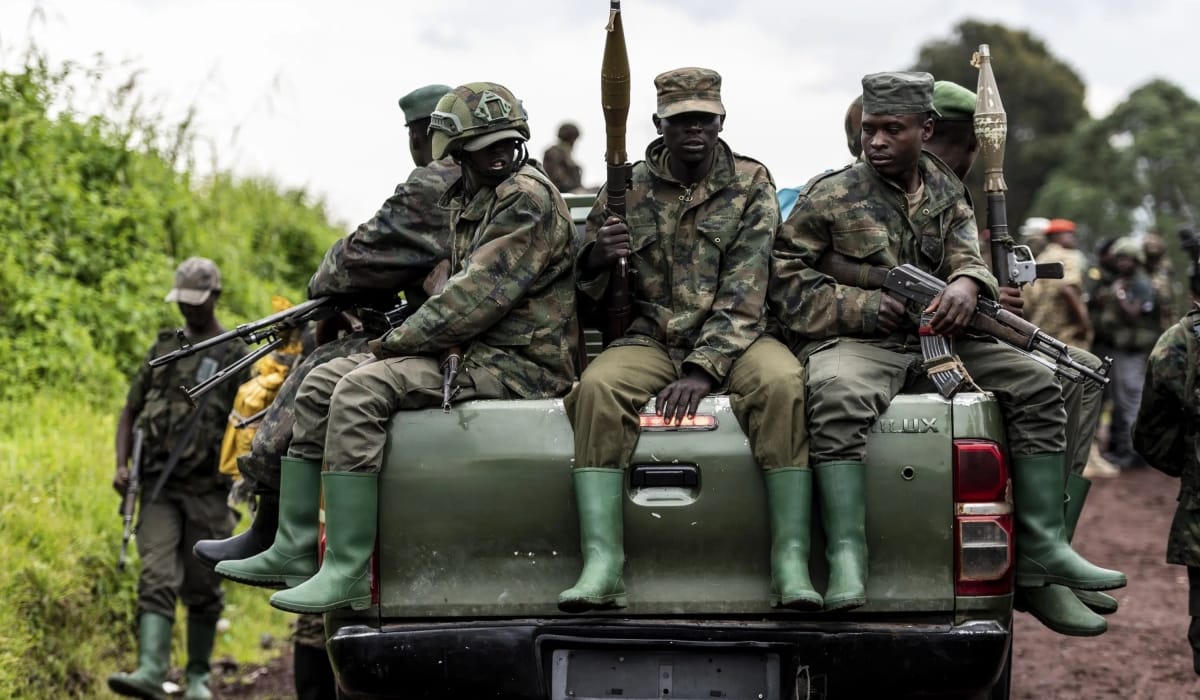
Nangaa didn't talk to the international media while he was hiding out in Rutshuru. But as I look at him now, he might have been the correct tool to pull the 'Rwandan' label off the M23. In Goma he started talking openly to the international press and even my 'old-timer' friend Colette Braeckman (who knew Corneille well when he was heading the CENI) was impressed by his answers. When Bukavu will fall Tshisekedi's position in Kinshasa will become highly critical, he might have to make room with his looted cash to return to Brussels, he'll be replaced by someone who'll have to talk to the M23 and Nangaa might be well suited to help in that process. Marching on Kinshasa – this would also not be possible – would even not be necessary. But again, it is too early to judge the political capacity of the AFC-M23 coalition. The first signs they sent out are positive, part of the population in Goma still distrusts them but that can change soon. I'll write another paper about this in six months when the dust of the ongoing fighting in the Kivus will be cleared up. Even the nomination of this new governor might be questionable, given his track record, but this might also pave the way to bring several armed gangs and militias that are still active in the hills around Goma back in line.
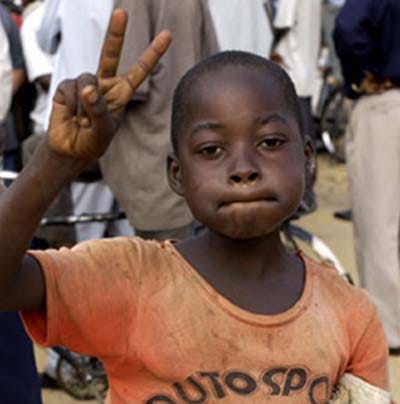
The root cause of this conflict is clear: the recognition of the Bagogwe-Banyamulenge-Kongomani, the return of their refugees, to stop the hatred and the racism against their community and to install a local administration that can protect this. The M23 does not want to install a new country in the DRC and the Rwandans do not intend to balkanize the country. And the M23 is not a RDF outfit. This argument is the biggest propaganda tool of manipulators such as Patrick Muyaya who even copied the whole negationist and racist propaganda against the Tutsis of organizations such as Jambo SPRL and convicted liars such as Charles Onana. Being very weak on the battlefield pushed Muyaya, in real dombolo style, into convincing the Congolese audience that Tutsis are devils and vermin that must be killed on the spot. The Congolese do not know the real history of their country and as they lost all their references with reality. So it was easy to brainwash them in the same way as Joseph Goebbels convinced millions of Germans that the Jews had to be massacred. Muyaya will have to answer for this later! And his career as a politician will be finished soon!
I might also be wrong in this assessment or partially wrong. Based on what my sources tell me, the M23 will temporize its military offensive after the fall of Bukavu. Uvira will have to be taken as well and maybe even Kalemi. If the Burundian president Neva will allow the FARDC and the FDLR to take shelter in Burundi his days might be counted as well. His army hates his guts for being sent into Congo as cannon fodder, Burundi is economically already completely 'kaput' and the Burundians are craving a new, more correct government. The domino effect of the events in Kivus might become his swan song.
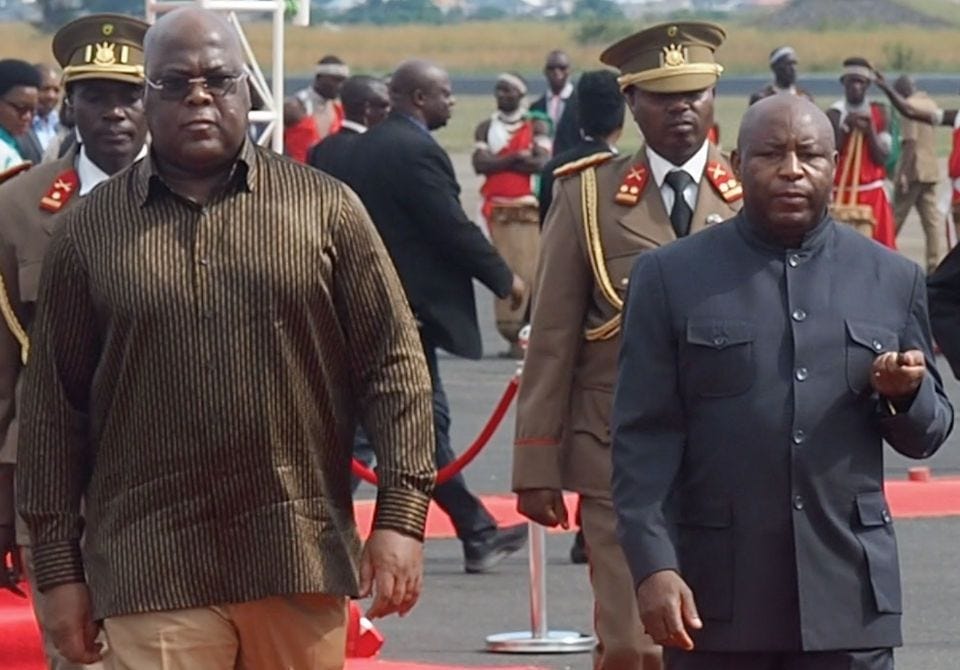
An implosion of power in Kinshasa might open the way for negotiations with the M23 and make a durable solution possible.
Rwanda
Rwanda's role in this conflict has been misunderstood by the outside world from the beginning. And Kagame & co learned a lot from the mistakes they made in the past when they backed up the AFDL, put Laurent Kabila in his seat, supported both RCD-Goma adventures and backed up Laurent Nkunda. 3 years ago, they were not involved with Sultani Makenga and only Tshisekedi's move to use the FDLR and the Wazalendo as his main fighting force pushed them into a more proactive position.
I have been following the RDF in all their campaigns during the past 30 years and I'm able to distinguish an M23 fighter from an RDF one. The involvement of Rwanda is far less than the UN group of experts claim. Lots of M23 soldiers have a past in the RDF but they joined the M23 after their demobilization. They were born in the Congolese Kivus and their families might live in Rwanda. Who can blame them for that because in the DRC they could be burned alive? The M23 maintains the same discipline in its ranks as the RDF. In Masisi I met M23 officers I met in Cabo del Gado when they were still RDF. They have the same morphology as the Rwandans, they speak the same language, and they share the same culture. But they are truly Congolese.

Forcing a guy like Kagame into the role of main negotiator in this conflict is just another trick of Kinshasa and the international community to justify the argument that he is pulling the strings and commanding the M23. He didn't start this war, his country was doing very well two years ago. But he fell victim to the same prejudices as the Tutsis in the DRC that all the Tutsis are Rwandans. I also get tired of being confronted with this argument, but I'll keep on fighting against this prejudice. I understood him when he told a journalist who asked him this question again that he didn't know if there were RDF soldiers in the DRC. It's making him very cynical. But the public opinion in Rwanda fully supports the M23 with whom they are related.
The FDLR was getting very strong again with the support of the FARDC and they were even recruiting elements in Rwanda to join their ranks in Congo via the so-called 'Checheka network' that wants to revive a new Hutu revolt in Rwanda and that is backed up by lobby groups in Europe. Combine these facts with the whole hatred campaign against Tutsis in the DRC and the stigmatization and warmongering language of the Congolese government and this picture becomes complete. This is also what people such as Jason Stearns and even Christoph Vogel do not seem to understand. Rwanda is developing fast, it does not want war, but it will defend itself. Keeping the violence outside its borders is Kagame's first obligation. He does not want to balkanize the DRC but he won't have an idiot like Tshisekedi dictate his agenda. Explaining this to most of the journalists who are now present in Goma would probably also be a waste of time as most of these clichés were already embedded deeply in their brains. When you try to explain that the war against the M23 also was kept alive by the government to deviate the attention of the public and the outside world to camouflage their corruption schemes in Kinshasa most of my colleagues also start watching the ceiling. They'll be gone in a week and that's the moment when I'll go back.

Outcome
As we write this paper the M23 is pushing onward to Kavumu, the airport of Bukavu. FARDC deserters and Wazalendo are plundering Bukavu and killing each other to split the goods. Burundian troops are still engaged at the frontline. Bukavu might be sandwiched by two forces: the one from the north that consists mainly of M23 elements and another one that might be spearheaded by Makanika, a Banyamulenge officer. After that the FARDC will be pushed out of the region towards Kalemi or Kindu or even into Burundi. This might also be the swan song of General Neva, the Hutu extremist president of Burundi. His army might turn against him, Burundian rebel groups (e.g., FNL, Red Tabara) might jump on the occasion to return to Congo. And the M23 won't stop them from doing that.
We can go much further with this analysis. And we can also be wrong about certain elements of it. I was happy to leave Goma after 5 days. I was getting nervous in this hectic henhouse. The M23 was doing its best to implant itself and to get a grip on things. Comparing this situation with the rebellions in the past, at this stage, wouldn't be fair because they were not given the chance yet to prove themselves. For the moment their troops are stretched out over a large area. To consolidate their presence, they'll need new recruits, a strong administration, etc. To be followed....
Marc Hoogsteyns, Kivu Press Agency
